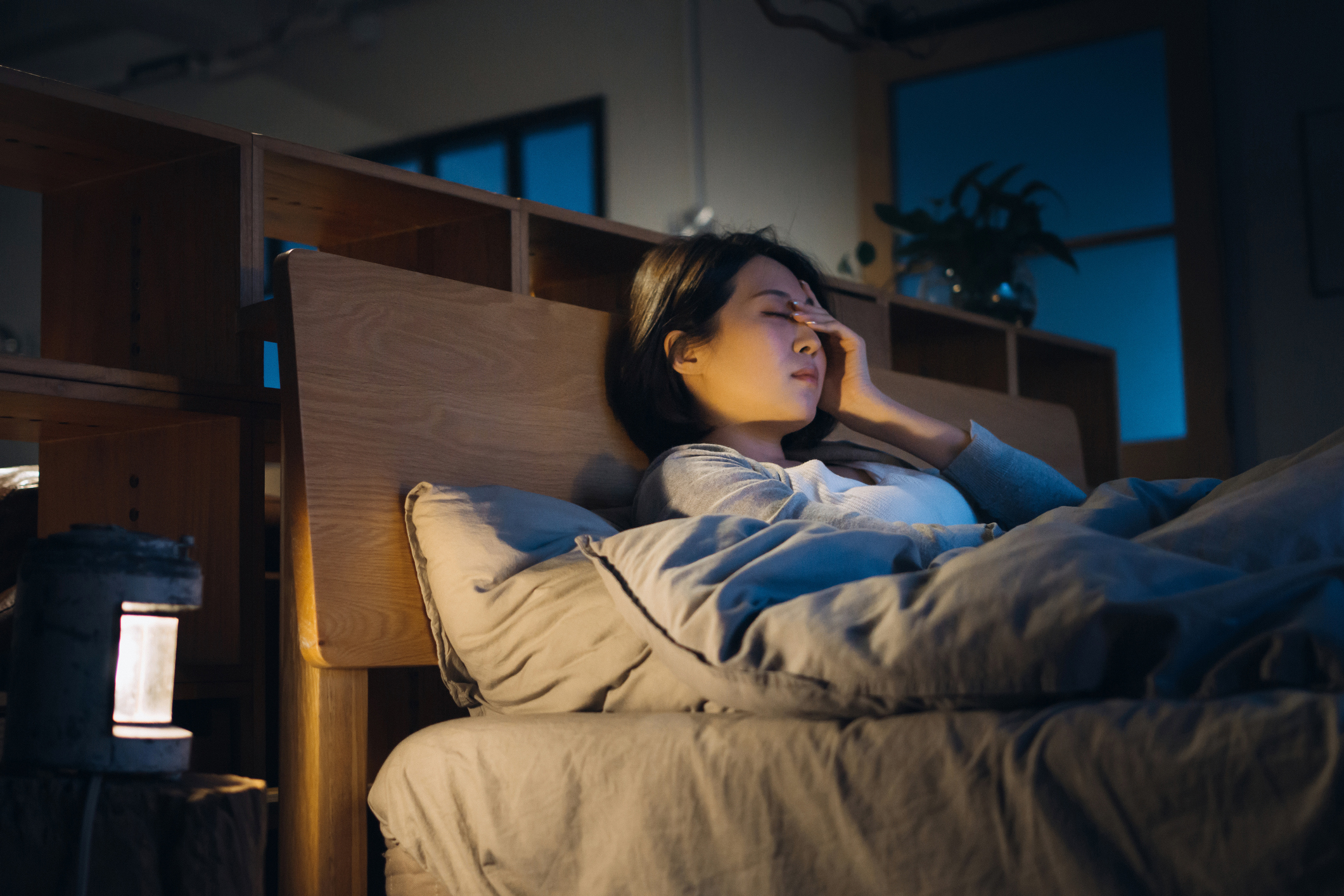Psychologist explains the silent mistake that ruins your health and ages your body without you knowing: 'The Domino Effect'

A large portion of the population is dissatisfied with the quality of their sleep and suffers from disorders that prevent them from getting adequate rest. This is the warning issued by psychologist specializing in sleep disorders and member of the Spanish Sleep Society, Nuria Roure, in an interview with Europa Press Salud, on the occasion of the publication of her latest book, "Sleep Habits."
The specialist emphasizes that we currently sleep, on average, an hour and a half less than our great-grandparents , a trend she attributes to the accelerated pace of life and what she calls the "culture of being productive all the time."
This pattern causes many people to delay bedtime and fail to prepare adequately for sleep, which reduces both the quantity and quality of their night's rest.

We sleep less due to the fast-paced lifestyle and the culture of constant productivity. Photo: iStock
Roure explains that lack of sleep has negative effects both in the short and long term. On an immediate level, it decreases energy, affects mood, and reduces concentration. In the medium and long term, it increases the risk of conditions such as diabetes, high blood pressure, cardiovascular disease, cancer, obesity, and cognitive impairment, including Alzheimer's.
Furthermore, he warns that poor sleep accelerates aging and decreases life expectancy , not only by shortening the years, but also by the loss of quality of life in the final stages.
On the contrary, a restful sleep produces a positive "domino effect": more energy upon waking, a better mood, and more optimistic thinking, which promotes the adoption of healthy habits.
Sleeping well, key at all ages The psychologist emphasizes that sleep is important at all stages of life and that it shouldn't be assumed that its quality decreases with age. For older people, she points out, rest is even more essential to protect against illness and promote healthy aging.
In his opinion, the belief that poor sleep is inevitable with age leads to resignation and, in many cases, to a dependence on sleep aids. “Normalization leads us to resignation; we shouldn't sleep poorly because of age; at 70-80, we can recover sleep without drugs. This is one of the stages during which good sleep is most needed. Older adults in our society are overmedicated, and drugs don't help them sleep well ,” he says.

Lack of sleep decreases energy, affects mood, and affects concentration. Photo: iStock
Roure points out that only 5% of people with sleep problems seek specialized care. He believes this is due, in part, to the perception that medical treatment will be based on prescription drugs.
The expert, accredited in sleep disorders by the European Sleep Research Society, maintains that medications are "a band-aid" that acts on the symptom but not the cause. She explains that there are more than 40 different causes that can lead to insomnia or difficulty sleeping, and each requires specific treatment.
Prolonged use of these drugs, he warns, can lead to tolerance, requiring increased doses to maintain the same effect. If the root cause of the problem isn't addressed, poor sleep will persist, and drug dependence will develop, with its potential adverse effects.
Strategies for healthy sleep The psychologist claims to have helped many people, even older people with chronic sleep problems, regain restful sleep without medication. She recommends consulting sleep medicine specialists and applying natural strategies to improve sleep quality before opting for pharmacological solutions.

Poor sleep accelerates aging and reduces life expectancy and quality of life. Photo: iStock
*This content was rewritten with the assistance of artificial intelligence, based on information from Europa Press, and reviewed by the journalist and an editor.
eltiempo

%3Aformat(jpg)%3Aquality(99)%3Awatermark(f.elconfidencial.com%2Ffile%2Fa73%2Ff85%2Fd17%2Fa73f85d17f0b2300eddff0d114d4ab10.png%2C0%2C275%2C1)%2Ff.elconfidencial.com%2Foriginal%2F43d%2F49b%2F641%2F43d49b641dbee4cbad33ffd1a6bd7cee.jpg&w=1280&q=100)
%3Aformat(jpg)%3Aquality(99)%3Awatermark(f.elconfidencial.com%2Ffile%2Fbae%2Feea%2Ffde%2Fbaeeeafde1b3229287b0c008f7602058.png%2C0%2C275%2C1)%2Ff.elconfidencial.com%2Foriginal%2F716%2Fc3e%2F3db%2F716c3e3db4caba23e0d8bf8386ffef84.jpg&w=1280&q=100)
%3Aformat(png)%3Aquality(99)%3Awatermark(f.elconfidencial.com%2Ffile%2Fa73%2Ff85%2Fd17%2Fa73f85d17f0b2300eddff0d114d4ab10.png%2C0%2C275%2C1)%2Ff.elconfidencial.com%2Foriginal%2Fbeb%2F6f0%2Fc68%2Fbeb6f0c68d3c2af8b04e0a2f9f288e11.png&w=1280&q=100)
%3Aformat(jpg)%3Aquality(99)%3Awatermark(f.elconfidencial.com%2Ffile%2Fa73%2Ff85%2Fd17%2Fa73f85d17f0b2300eddff0d114d4ab10.png%2C0%2C275%2C1)%2Ff.elconfidencial.com%2Foriginal%2F4bf%2Fe7c%2F443%2F4bfe7c4439a1f832e19de49b6329014b.jpg&w=1280&q=100)
%3Aformat(jpg)%3Aquality(99)%3Awatermark(f.elconfidencial.com%2Ffile%2Fbae%2Feea%2Ffde%2Fbaeeeafde1b3229287b0c008f7602058.png%2C0%2C275%2C1)%2Ff.elconfidencial.com%2Foriginal%2F2f0%2F625%2F7d9%2F2f06257d96dc6d4c5b078c4b9e185756.jpg&w=1280&q=100)